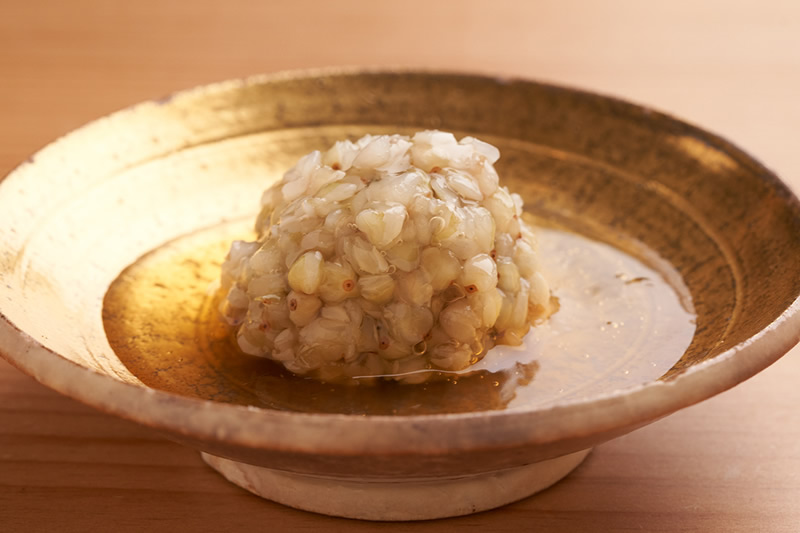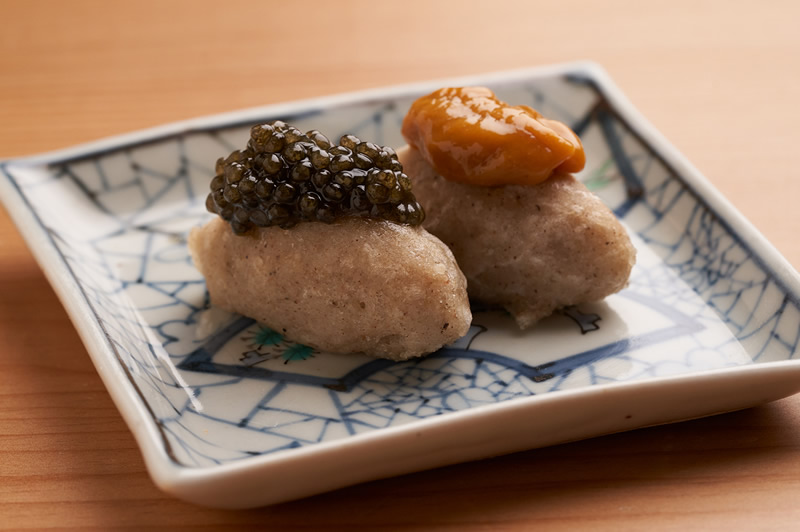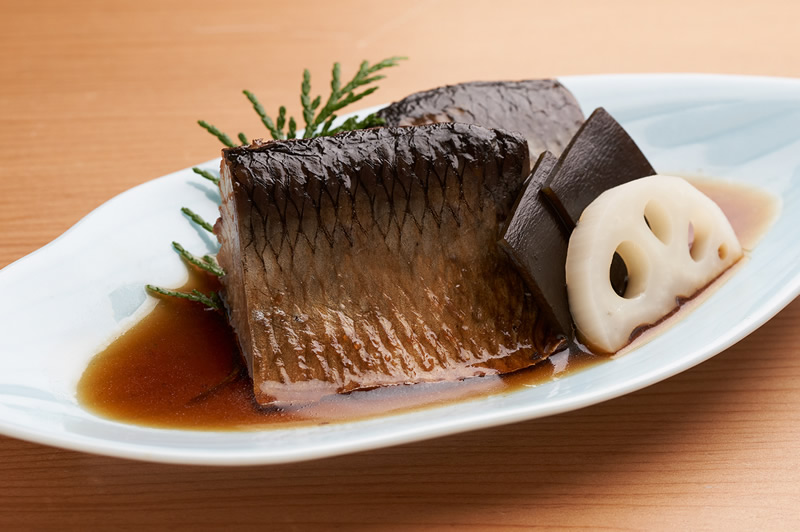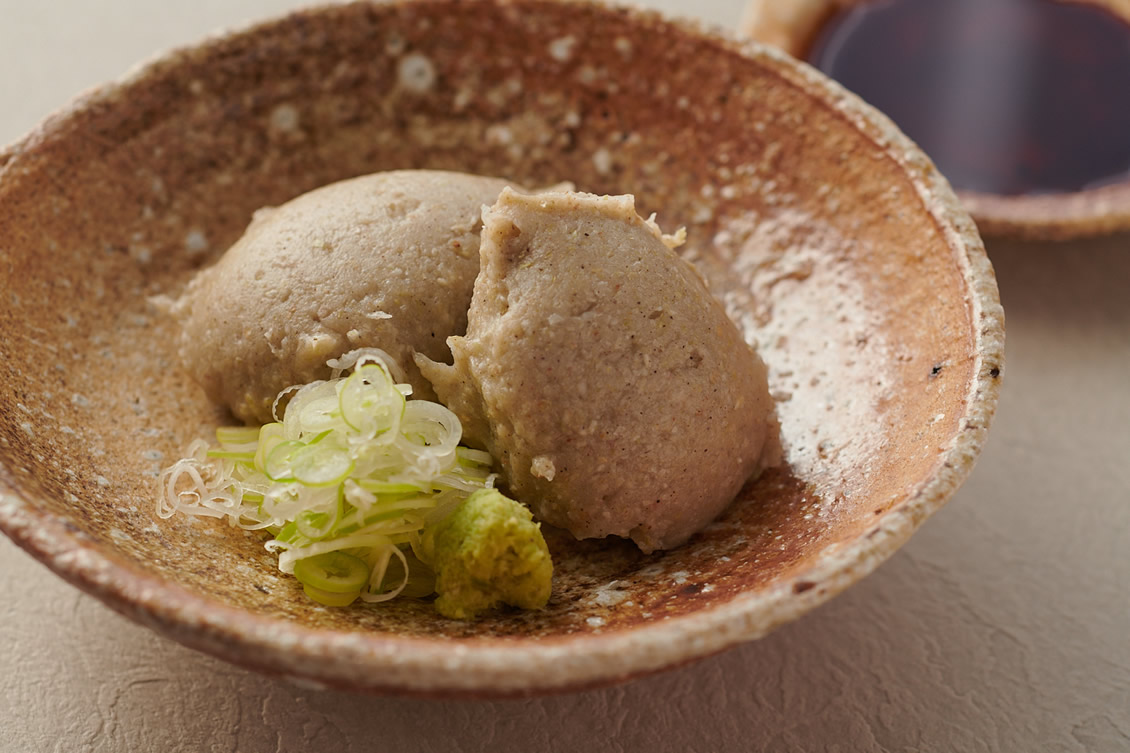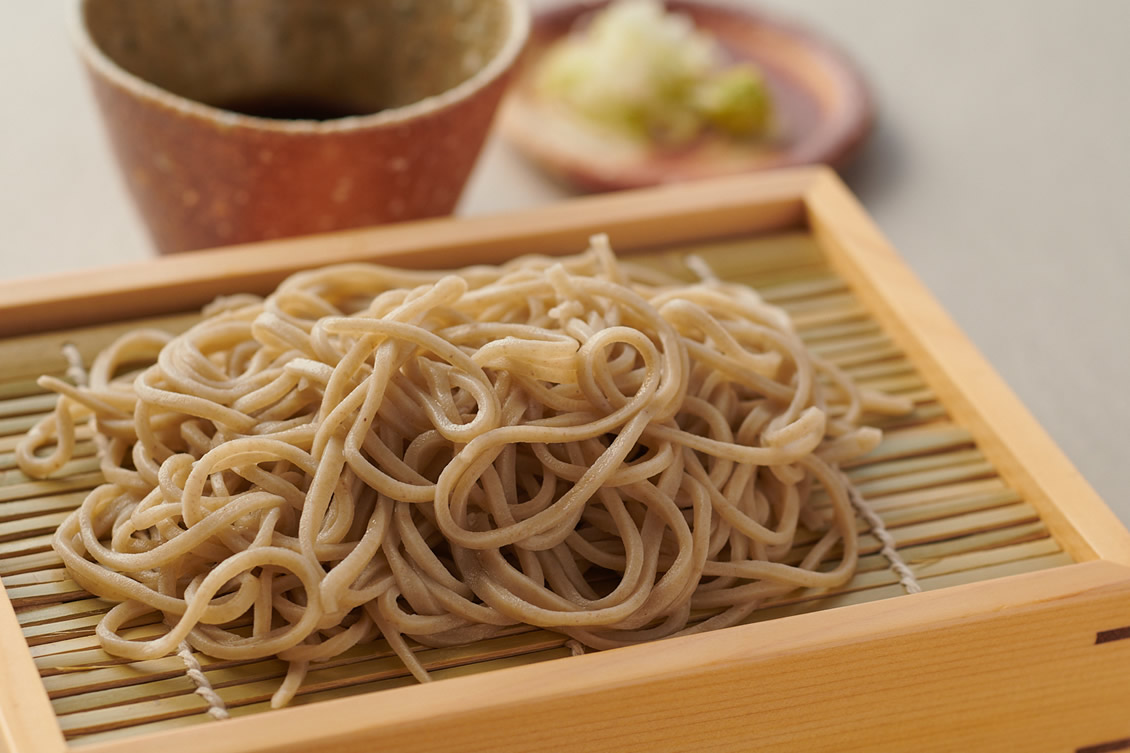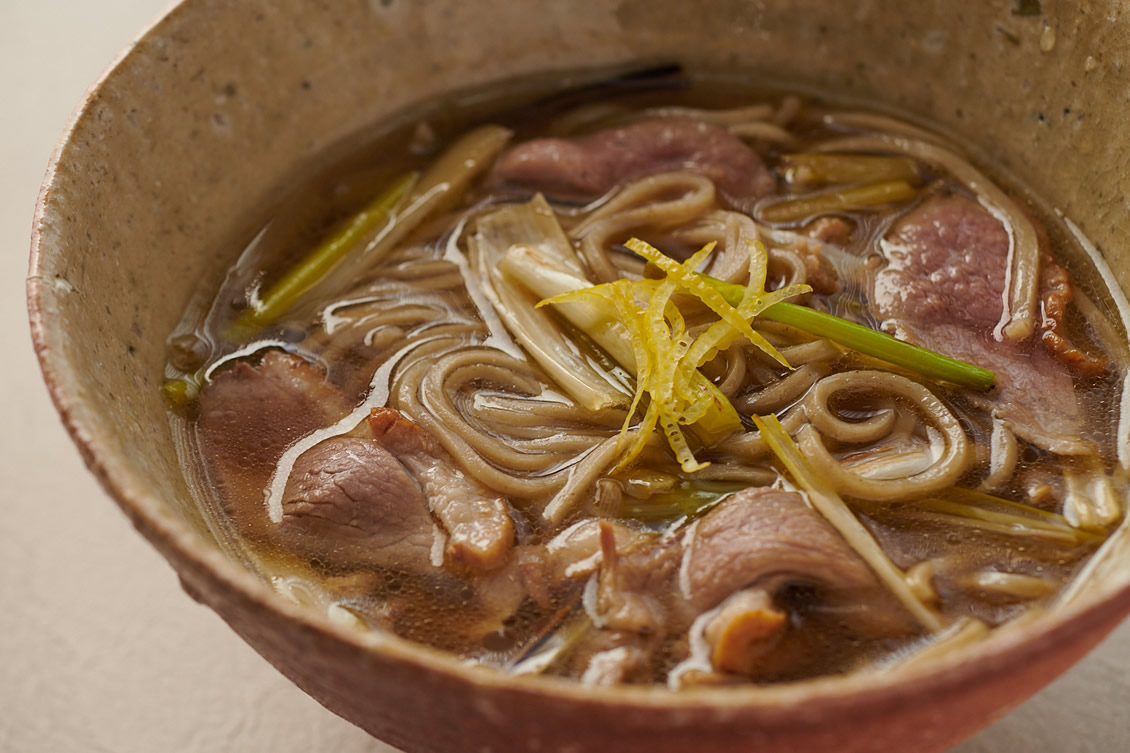What is Soba Kappo?
The genre of high-class Japanese cuisine that involves Kappo(割烹)’s “Kap(割)” which means cutting or knife-handling and “Po(烹)” which is cooking or fire-handling is known as Kaiseki(会席), Shojin(精進), another Kaiseki(懐石), and is comprehensively called Kappo. But nowadays, it commonly suggests high-class counter-style restaurants where the chefs demonstrate their knife and fire skills right in front of the customers.
At DAI-DAI, customers will enjoy Mori Yamato’s delicate and rhythmical Japanese cuisine, served at a counter table made of a two-thousand-year-old single cedar board with the subtle and refreshing scent of wood. His menus incorporate the best seasonal ingredients with his Wakiya-endorsed sensibilities, and of course, do not forget various kinds of Soba to wrap up the calm and relaxed evening.
The name Dai-dai (橙), Japanese bitter/sour orange or its evergreen tree of the Rutaceae family, is taken from the Japanese phrase of Dai-dai(代々)which means “from generation to generation, or multi-generationally”. Dai-Dai fruit does not fall from the tree even after winter, and if left unharvested, it will remain attached to the branch for two or three years multi-generationally. Furthermore, though it ripens into orange-yellow in the winter, it will turn green again on the tree the following summer, and in the next winter it will turn orange-yellow once again.
With the hope to prosper “from generation to generation” in the gourmet city of Ginza, and also with the resolution to be a bearer “from generation to generation” of the philosophy of Soba learned from Master Takahashi, Mori’s “Soba Kappo DAI-DAI” was born.
At DAI-DAI where Mori’s motto is “today’s Soba should be the best in my lifetime,” guests will discover the marriage of Soba with Sake and wine from veteran sommelier HEUCHI Seiji, and experience the combined culinary horizons of Wakiya, Takahashi and Mori.
